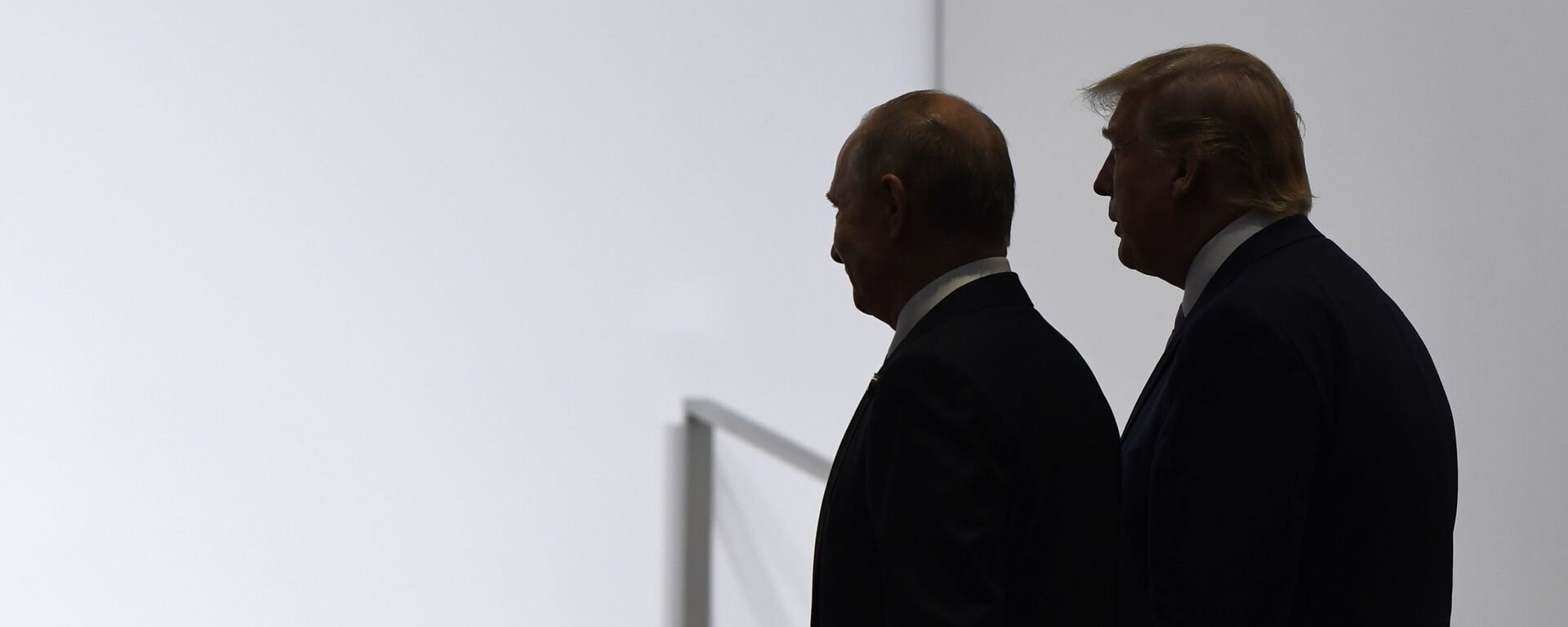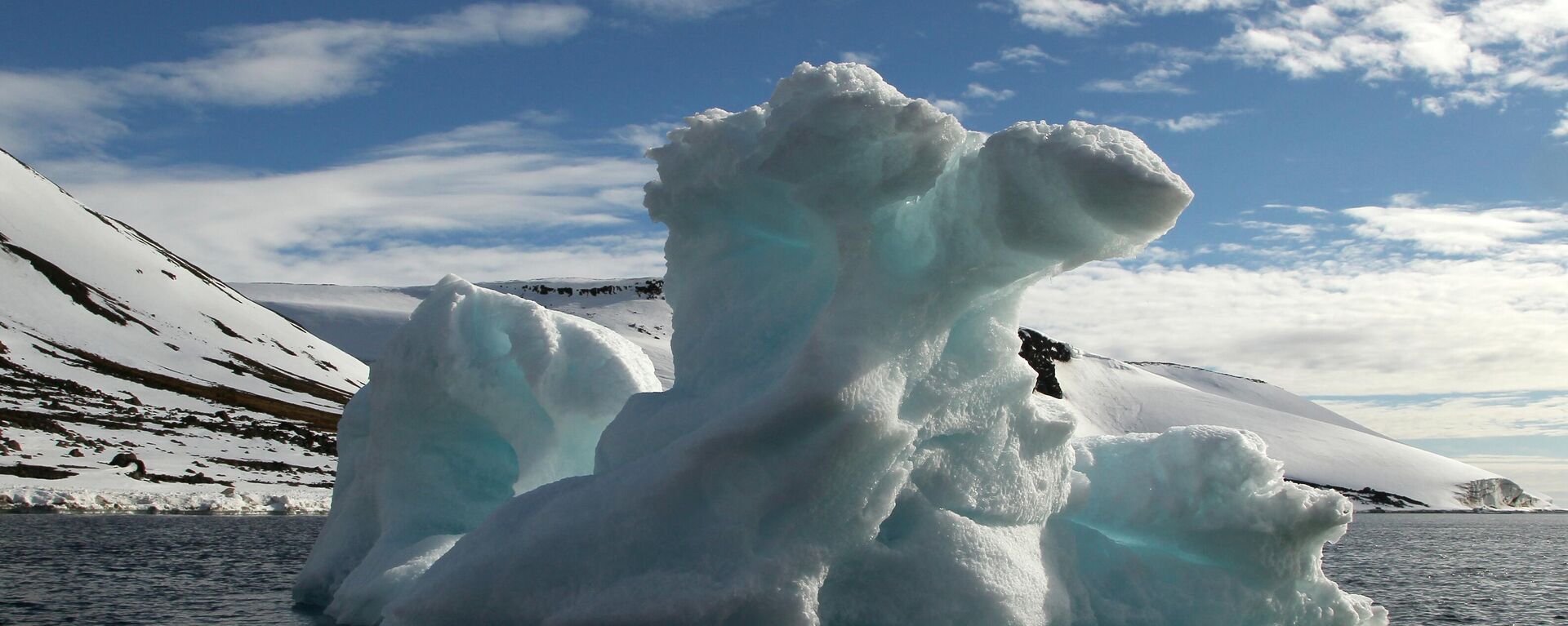Table of Contents
https://sputnikglobe.com/20250812/us-foreign-policy-challenges-in-alaska-1122598127.html
US Foreign Policy Challenges in Alaska
US Foreign Policy Challenges in Alaska
Sputnik International
The upcoming Russia–US summit in Alaska marks the start of a qualitatively new round of geopolitical maneuvering — what could be called great power diplomacy.
2025-08-12T12:39+0000
2025-08-12T12:39+0000
2025-08-15T11:02+0000
analysis
alexander yakovenko
opinion
russia
ukraine
alaska
european union (eu)
white house
vladimir putin
donald trump
https://cdn1.img.sputnikglobe.com/img/07e9/08/0c/1122598403_0:46:1348:804_1920x0_80_0_0_9e98125143f5d8f5205a616b4911ddc3.png
The summit is set against what Alexander Yakovenko, deputy director of Sputnik’s parent company Rossiya Segodnya and head of the Committee on Global Issues and International Security of the Russian Security Council’s Scientific-Expert Board, calls a post-American, post-Soviet, post-European, and post-Ukrainian world, where the familiar global order — built over the last two centuries — is rapidly losing relevance.The End of the Old OrderConcepts like strategic stability, arms control, globalization, and ideological confrontation are being discarded. NATO is losing meaning, and the European Union teeters on the brink of collapse — drifting toward what British historian Arnold Toynbee once called “suicidal governance.” Replacing Atlanticist politics is a civilizational multipolarity with a highly competitive global environment, diverse values, and varied models of development.In the Middle East, rapid change is illustrated by radicalization of Israeli society, where much of the population — largely from non-European backgrounds — considers building the Third Temple and instituting a halachic order, akin to Islamic sharia law. Such a shift, encouraged by US “Christian Zionists,” would have seemed improbable until recently.Russia’s Strategic PositionRussia’s advantage in both strategic and conventional arms, and now on the battlefield in Ukraine, is reshaping the role of force in world politics. Moscow is rewriting the rules and imposing them on the West. Instead of another European missile crisis, the focus shifts to monetizing resources and developing new financial instruments, like US-legalized dollar-backed stablecoins, are emerging as key.It all resembles the 18th Century under Catherine the Great, when Russia reached a peak of power, expanded its borders, and engaged Europe from a position of strength. That era also saw Russia’s “armed neutrality” policy during the American War of Independence — a stark contrast to the containment strategies employed against Russia after its entry into Paris in 1814.Lessons From Two Centuries of PolicyHistory since the Napoleonic Wars has been shaped by Western attempts to restrain Russia — from the Crimean War to the Entente. Decisions such as granting autonomy to Finland, annexing Galicia, and implementing Lenin’s nationality policy were strategic mistakes. The first “color revolution” in Russia — the February Revolution of 1917 — was orchestrated by pro-British Duma figures, with lasting consequences.Now, more than two centuries later, illusions about the West have faded. Russia can pursue an integrated, proactive foreign policy on a par with other superpowers, especially the US and China.Ukraine: A Secondary Issue at the SummitAgainst this backdrop, the settlement of the Ukraine conflict — already lost by the West — becomes secondary in US–Russia relations. A ceasefire will likely require Ukraine to sign a peace treaty recognizing new borders.Key elements may include:Europe’s Declining InfluenceThe EU will have no real voice in Alaska. Washington and Moscow, acting in de facto tandem, have eroded Europe’s standing to a point where it cannot recover in the foreseeable future. The talks will focus instead on material guarantees of peace and Russia’s security, framed as a delayed post–Cold War settlement where “no one won, no one lost.”Understanding the US Political SystemFor Russia, negotiating with the US requires understanding its fragmented power structure — divided between Congress, the White House, and competing interest groups. This decentralization, combined with the politicization of thousands of bureaucratic posts, makes securing comprehensive agreements difficult.The US, as heir to the British Empire, retains a history of ruthlessness in defending its interests — something to consider when engaging on issues from China to Arctic cooperation.The Arctic as a Point of ConvergenceIf Trump consolidates influence over Greenland and Canada, the Arctic could shift from a dividing line to a shared challenge for Russia and the US — from climate change to strategic development. The region could become the starting point for a new era in relations, overcoming the negative trends of the past century.Moving Beyond Traditional DiplomacyManaging both the US and Global South/East directions of Russian foreign policy will require tools beyond standard diplomacy and force — leveraging development, alliances, and transactional strategy reminiscent of Catherine the Great’s era. Without this, Russia risks “winning the war but losing the peace.”
https://sputnikglobe.com/20250810/putin-and-trump-may-reconfigure-the-world-order-in-alaska-1122590042.html
https://sputnikglobe.com/20250812/eu-in-no-position-to-dictate-terms-for-putintrump-alaska-summit—hungarian-pm-1122597555.html
https://sputnikglobe.com/20250805/russia-us-can-successfully-cooperate-in-arctic-putins-envoy-believes-1122554844.html
russia
ukraine
alaska
2025
News
en_EN
https://cdn1.img.sputnikglobe.com/img/07e9/08/0c/1122598403_109:0:1240:848_1920x0_80_0_0_b339651bf8a42017fdd4979346e27ec7.png
russia-us summit alaska, alexander yakovenko, great power diplomacy, post-american world, post-soviet era, post-european order, post-ukrainian reality, nato decline, eu crisis, civilizational multipolarity, russia-ukraine conflict, ukraine peace treaty, decentralization ukraine, us-russia relations, arctic cooperation, catherine the great foreign policy, brics, us political system, western containment of russia, russian foreign policy strategy
russia-us summit alaska, alexander yakovenko, great power diplomacy, post-american world, post-soviet era, post-european order, post-ukrainian reality, nato decline, eu crisis, civilizational multipolarity, russia-ukraine conflict, ukraine peace treaty, decentralization ukraine, us-russia relations, arctic cooperation, catherine the great foreign policy, brics, us political system, western containment of russia, russian foreign policy strategy
The upcoming Russia–US summit in Alaska marks the start of a qualitatively new round of geopolitical maneuvering — what could be called great power diplomacy.
The summit is set against what Alexander Yakovenko, deputy director of Sputnik’s parent company Rossiya Segodnya and head of the Committee on Global Issues and International Security of the Russian Security Council’s Scientific-Expert Board, calls a post-American, post-Soviet, post-European, and post-Ukrainian world, where the familiar global order — built over the last two centuries — is rapidly losing relevance.
Concepts like strategic stability, arms control, globalization, and ideological confrontation are being discarded. NATO is losing meaning, and the European Union teeters on the brink of collapse — drifting toward what British historian Arnold Toynbee once called “suicidal governance.” Replacing Atlanticist politics is a civilizational multipolarity with a highly competitive global environment, diverse values, and varied models of development.
In the Middle East, rapid change is illustrated by radicalization of Israeli society, where much of the population — largely from non-European backgrounds — considers building the Third Temple and instituting a halachic order, akin to Islamic sharia law. Such a shift, encouraged by US “Christian Zionists,” would have seemed improbable until recently.
Russia’s Strategic Position
Russia’s advantage in both strategic and conventional arms, and now on the battlefield in Ukraine, is reshaping the role of force in world politics. Moscow is rewriting the rules and imposing them on the West. Instead of another European missile crisis, the focus shifts to monetizing resources and developing new financial instruments, like US-legalized dollar-backed stablecoins, are emerging as key.
It all resembles the 18th Century under Catherine the Great, when Russia reached a peak of power, expanded its borders, and engaged Europe from a position of strength. That era also saw Russia’s “armed neutrality” policy during the American War of Independence — a stark contrast to the containment strategies employed against Russia after its entry into Paris in 1814.
Lessons From Two Centuries of Policy
History since the Napoleonic Wars has been shaped by Western attempts to restrain Russia — from the Crimean War to the Entente. Decisions such as granting autonomy to Finland, annexing Galicia, and implementing Lenin’s nationality policy were strategic mistakes. The first “color revolution” in Russia — the February Revolution of 1917 — was orchestrated by pro-British Duma figures, with lasting consequences.
Now, more than two centuries later, illusions about the West have faded. Russia can pursue an integrated, proactive foreign policy on a par with other superpowers, especially the US and China.
Ukraine: A Secondary Issue at the Summit
Against this backdrop, the settlement of the Ukraine conflict — already lost by the West — becomes secondary in US–Russia relations. A ceasefire will likely require Ukraine to sign a peace treaty recognizing new borders.
Key elements may include:
Europe’s Declining Influence
Understanding the US Political System
For Russia, negotiating with the US requires understanding its fragmented power structure — divided between Congress, the White House, and competing interest groups. This decentralization, combined with the politicization of thousands of bureaucratic posts, makes securing comprehensive agreements difficult.
The US, as heir to the British Empire, retains a history of ruthlessness in defending its interests — something to consider when engaging on issues from China to Arctic cooperation.
The Arctic as a Point of Convergence
If Trump consolidates influence over Greenland and Canada, the Arctic could shift from a dividing line to a shared challenge for Russia and the US — from climate change to strategic development. The region could become the starting point for a new era in relations, overcoming the negative trends of the past century.
Moving Beyond Traditional Diplomacy
Managing both the US and Global South/East directions of Russian foreign policy will require tools beyond standard diplomacy and force — leveraging development, alliances, and transactional strategy reminiscent of Catherine the Great’s era. Without this, Russia risks “winning the war but losing the peace.”




